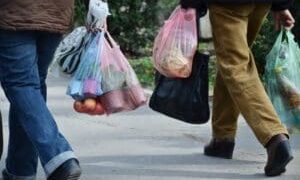Despite a washout summer, high interest rates, and looming tax hikes, Brits are spending more on small luxuries such as pastries and cosmetics, a trend Barclaycard has dubbed the “sweet treat economy.”
According to Barclaycard, consumer card spending rose by 1% in August following two months of decline, with nearly half of surveyed individuals (47%) continuing to indulge in minor luxuries even while trying to cut back on other expenses.
Karen Johnson, Head of Retail at Barclays, noted a trend of consumers turning to retail therapy for mood-boosting pick-me-ups. Baked goods have become the most popular affordable treat, influenced by social media trends like the viral “Dubai chocolate bar” and the “crookie,” a hybrid croissant and cookie, both of which have seen a surge in sales.
This rise in feel-good spending aligns with what is known as the “lipstick effect,” a theory suggesting that people gravitate towards affordable luxuries during tough times. Originated by Leonard Lauder, the former chairman of Estée Lauder, the theory highlights how lipstick sales rose in the wake of the 9/11 attacks despite overall declines in beauty sales. Barclaycard data showed a significant 7.3% increase in spending at health and beauty retailers in August, marking the largest rise since January 2023.
The trend of spending on small luxuries comes amid pessimistic economic forecasts from Downing Street. Chancellor Rachel Reeves recently highlighted a £22 billion “black hole” in the nation’s finances, and Prime Minister Sir Keir Starmer described the country as “broke and broken.” With warnings of a “painful” upcoming Budget, consumers are seeking comfort in small indulgences.
Yet, despite the bleak outlook, consumer confidence has seen a surprising uptick. Barclaycard’s survey revealed a five percentage point increase in confidence in August, with 70% of respondents feeling more secure in their household finances and 73% more confident in their ability to live within their means compared to the previous month. This boost in optimism may be linked to the Bank of England’s first interest rate cut in four years, with economists predicting further reductions.
Ms Johnson expressed optimism about future spending: “It’s encouraging to see that Brits are feeling noticeably more confident in their personal finances – a strong indicator of future spending as we approach the crucial festive period.”
Retail spending showed growth for the first time since March, with a slight rise of 0.1%. Garden centres benefited from the sunny weather, enjoying an 8% increase in spending, while grocery spending rose by 1.9%, the largest jump since March. However, clothing shops saw a 1.7% decline, likely impacted by bad weather, including Storm Lilian.
Barclaycard also highlighted a growing awareness among consumers of “double-dip” shrinkflation, where products have reduced in size multiple times without a corresponding drop in price—or even with price increases. Products like chocolate, crisps, biscuits, snack bars, and sweets were most commonly reported to have shrunk more than once, a tactic used by companies to maintain profits amidst rising manufacturing and labour costs.

























